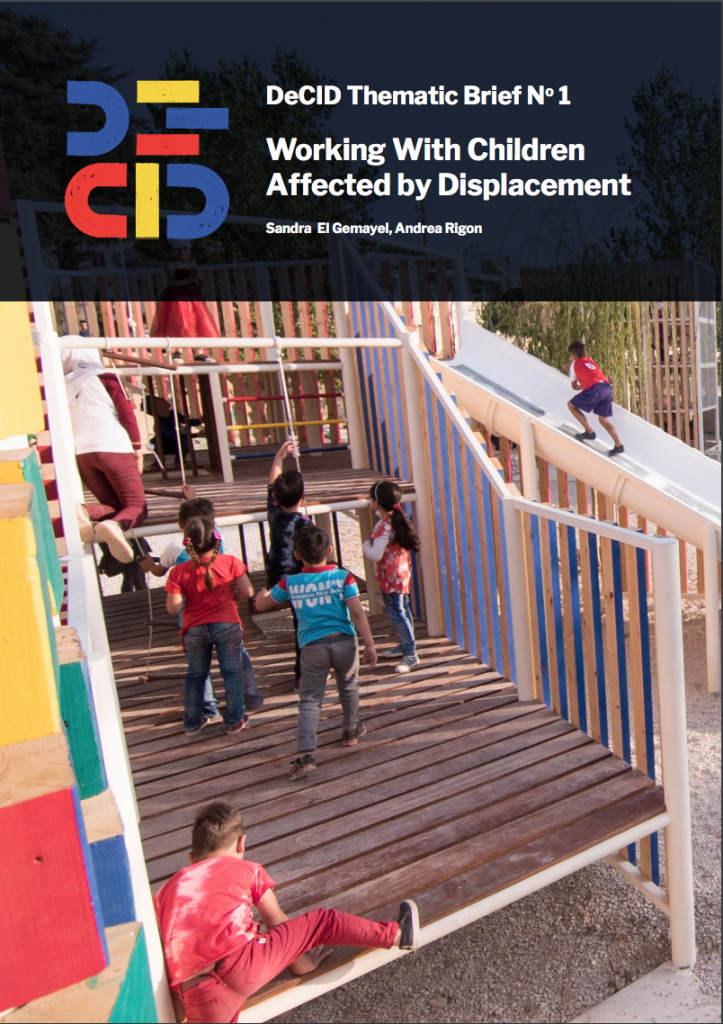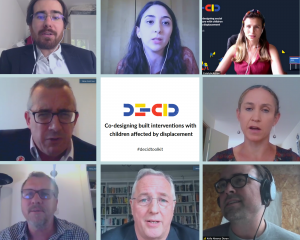According to UNHCR, by the end of 2018, armed conflict, persecution, human rights violations, deteriorating political and socioeconomic conditions, and violence had led to the forced displacement of 70.8 million people worldwide, of whom 41.3 million were internally displaced, 25.9 million refugees, and 3.5 million asylum seekers. Natural disasters led to the internal displacement of over 17 million people worldwide in 2018 alone (Internal Displacement Monitoring Centre 2019). In 2018, almost half of the refugee population worldwide was composed of children, and around 138,600 children were unaccompanied or separated, although these numbers are significantly underestimated.
“Working With Children Affected by Displacement” (pdf, 4MB) by DeCID Researcher Sandra El Gemayel and Principal Investigator Dr Andrea Rigon is the first in a series of DeCID research briefs which aim to delve deeper into topics concerning the co-design of social infrastructure with children affected by displacement.
This brief aims to shed light on the difficult events that children experience before, during and after forced displacement, highlighting forcibly displaced children’s unique vulnerabilities and the effects of their experiences on their overall wellbeing. It draws attention to the necessity of restoring regular school attendance and play opportunities in displaced children’s lives, acknowledging the importance of the environment for children’s play. Finally, the brief provides details on how to conduct participatory research with displaced children when planning interventions, including how to engage with children, stressing the importance of child participation for both children and research.
Key points highlighted in the brief:
- Children may experience highly distressing events before, during and after forced displacement, and these may have long-lasting effects. Such events may result in physical disability and deterioration of physical health, cultural and social losses, and psychological suffering such as post-traumatic stress disorder, depression and anxiety
- Children’s individual responses to traumatic events differ and depend on the complex intersection of many factors.
- The proximity of parents or caregivers to children during terrifying events can significantly mitigate the effects of these experiences on children.
- Some of the most widely reported factors provided by communities that may protect refugee children and help them overcome highly distressing experiences are high quality schools, childcare facilities, and safe spaces for play and learning.
- Children are agents and rights holders, are powerful co-creators of knowledge, and are experts in their own lives. Children’s participation provides researchers and practitioners with a unique understanding of and knowledge into children’s life experiences.
Download the research brief here (pdf, 4MB).



